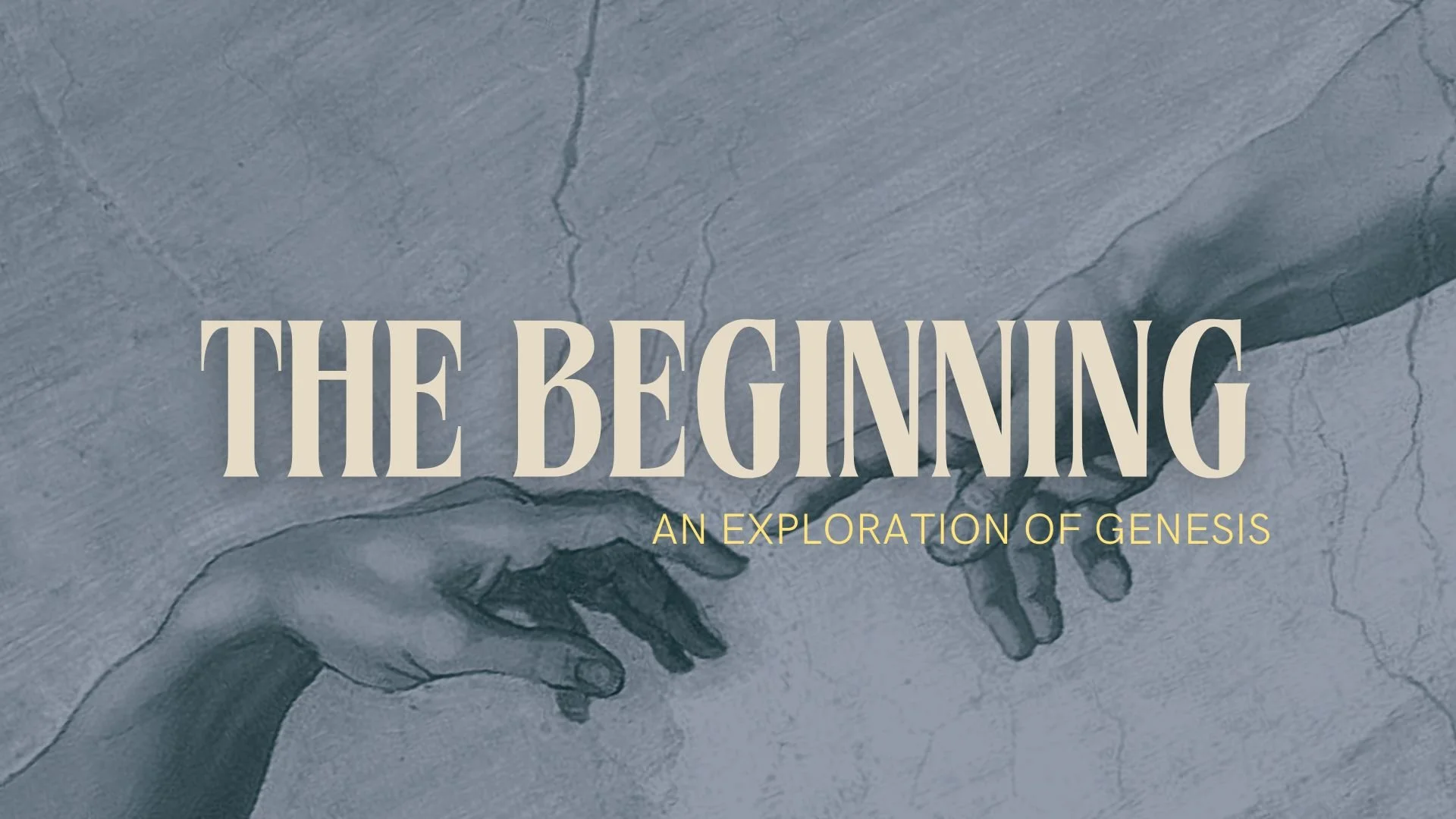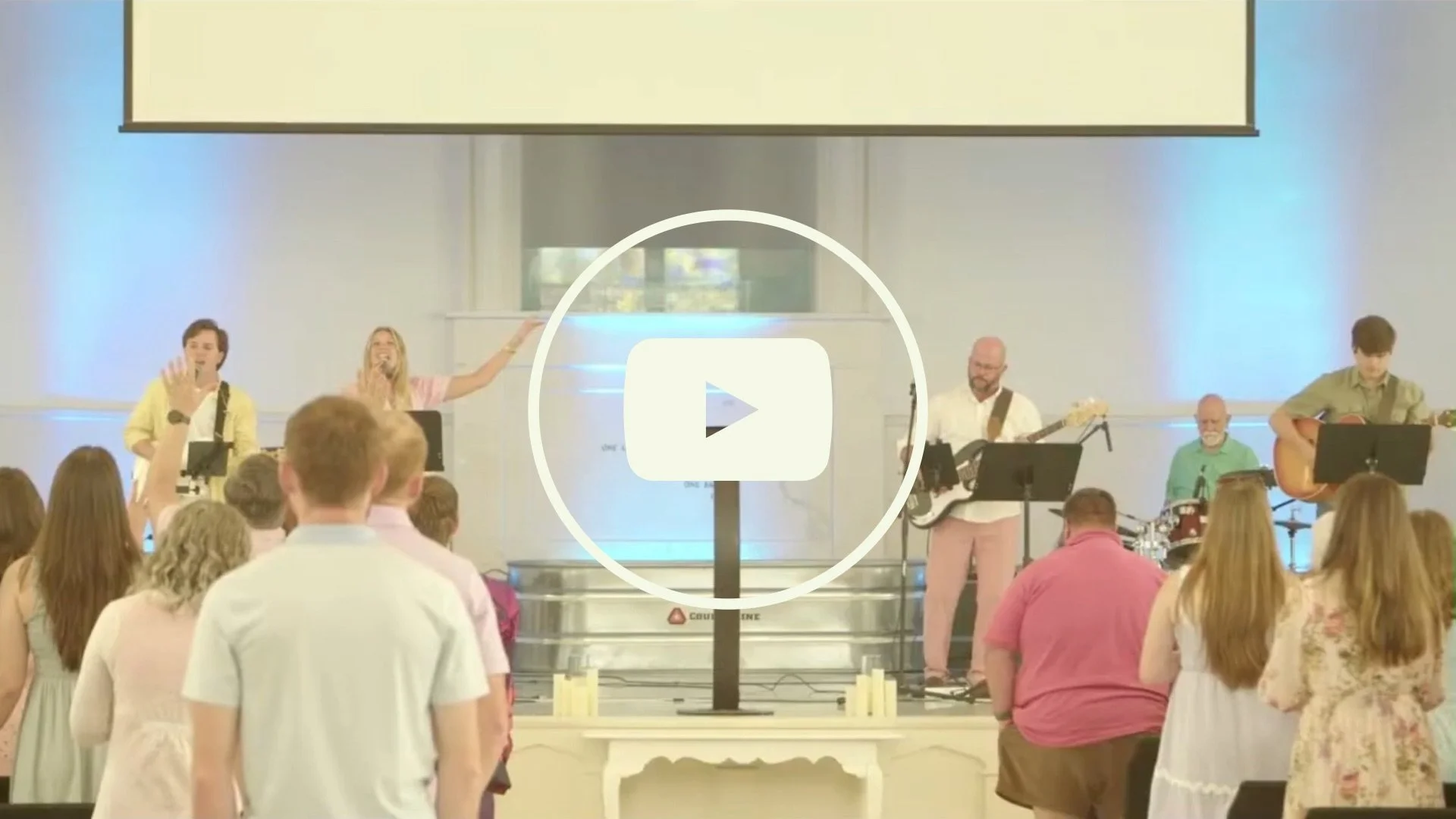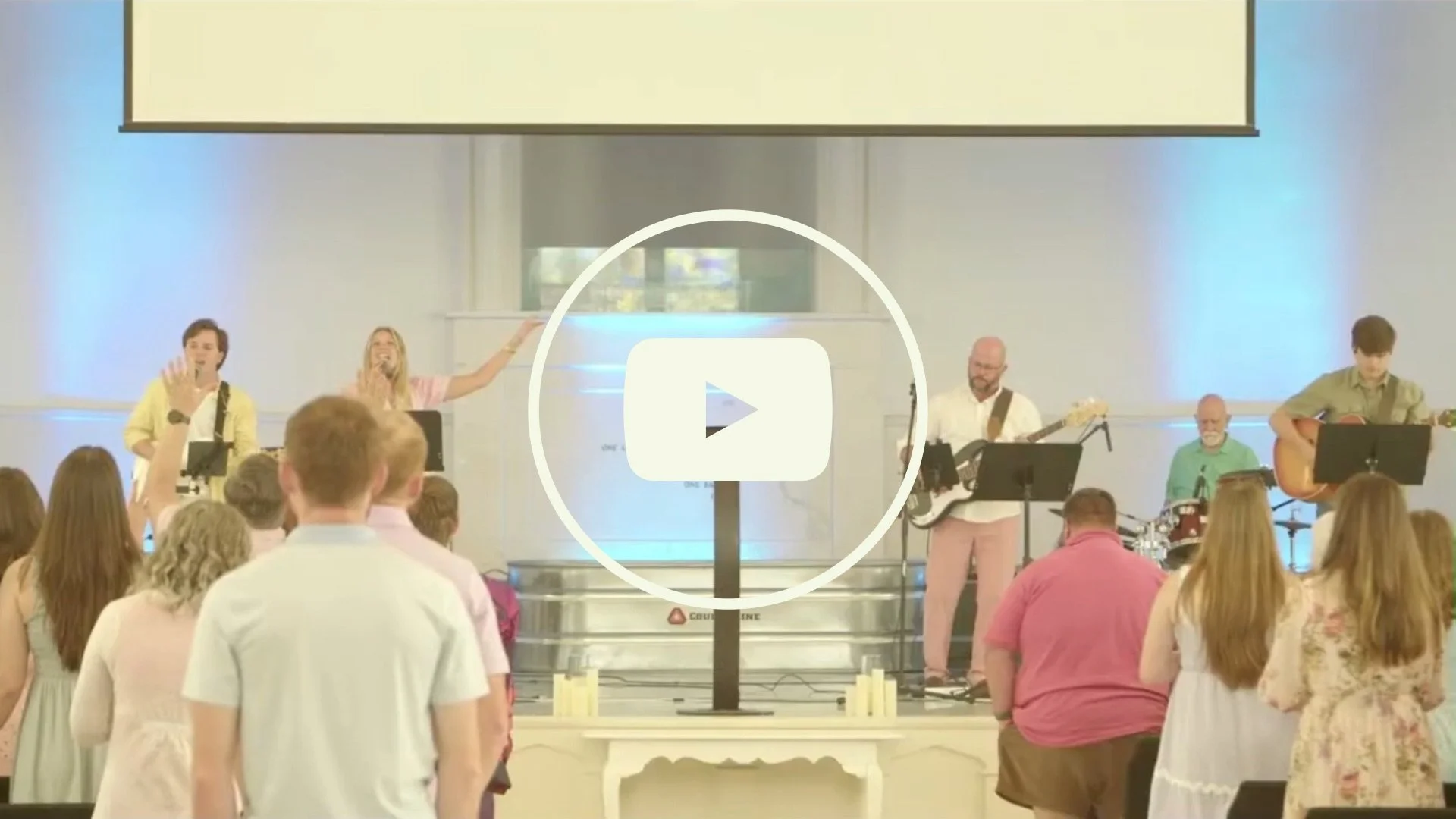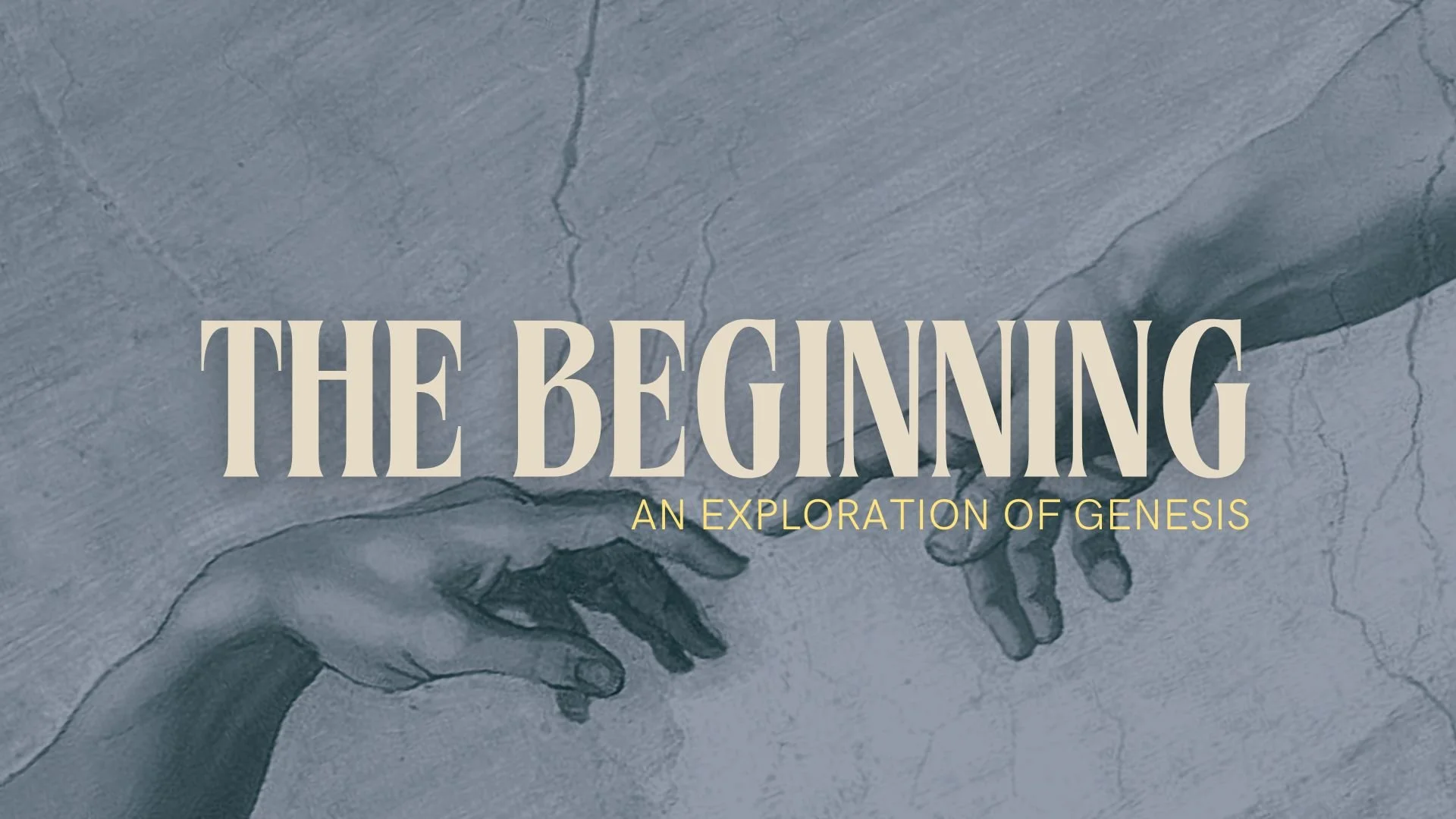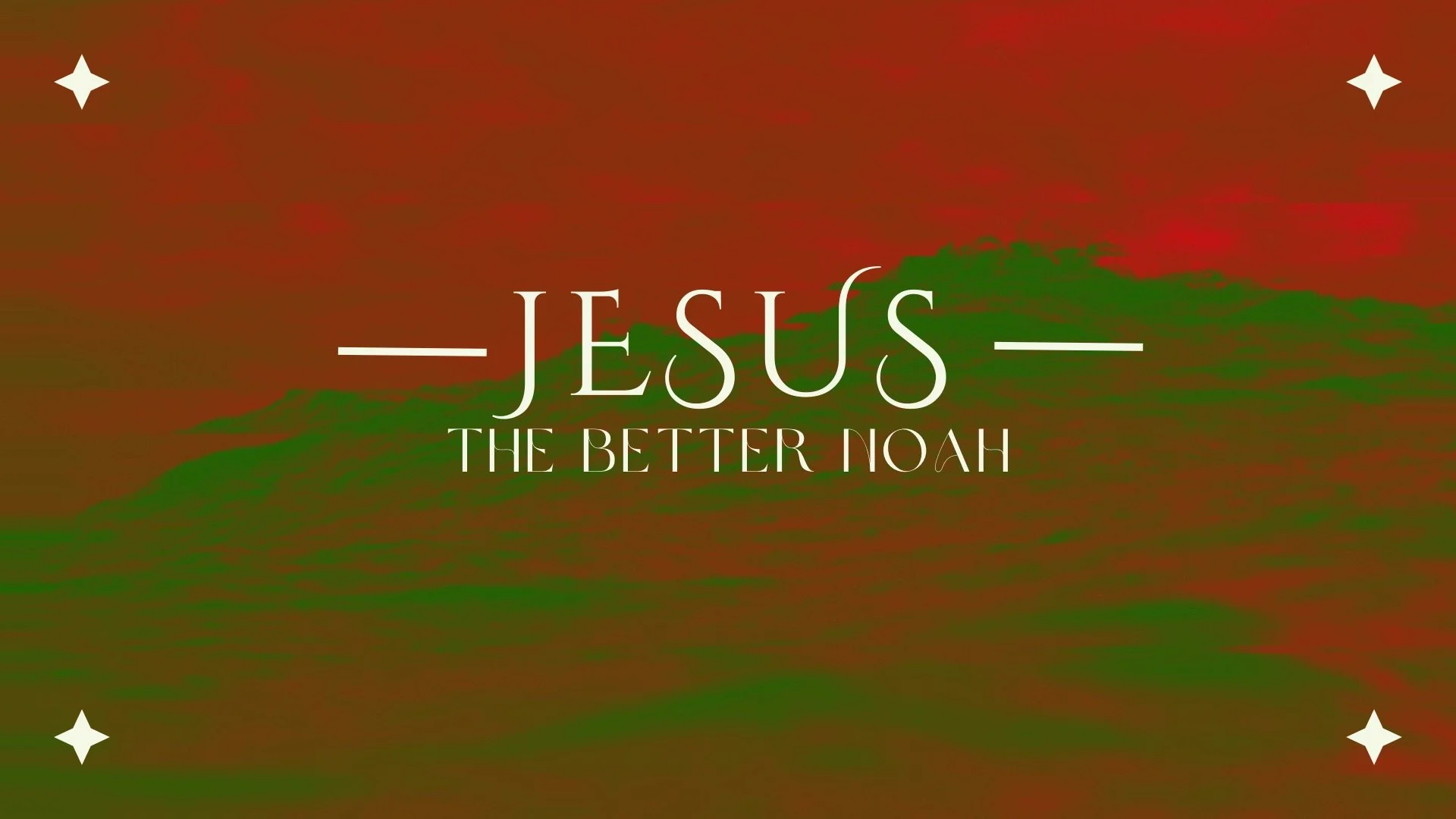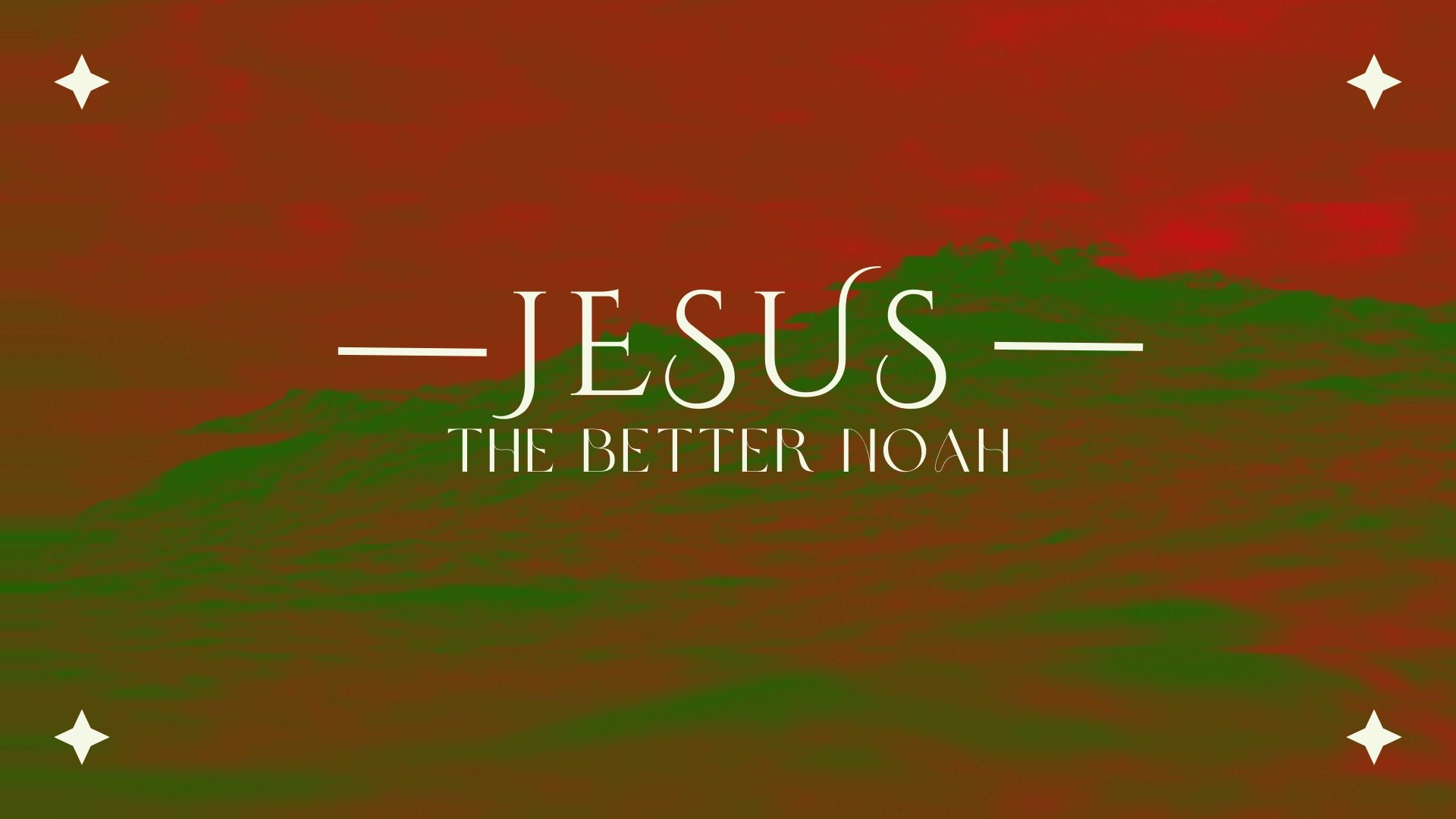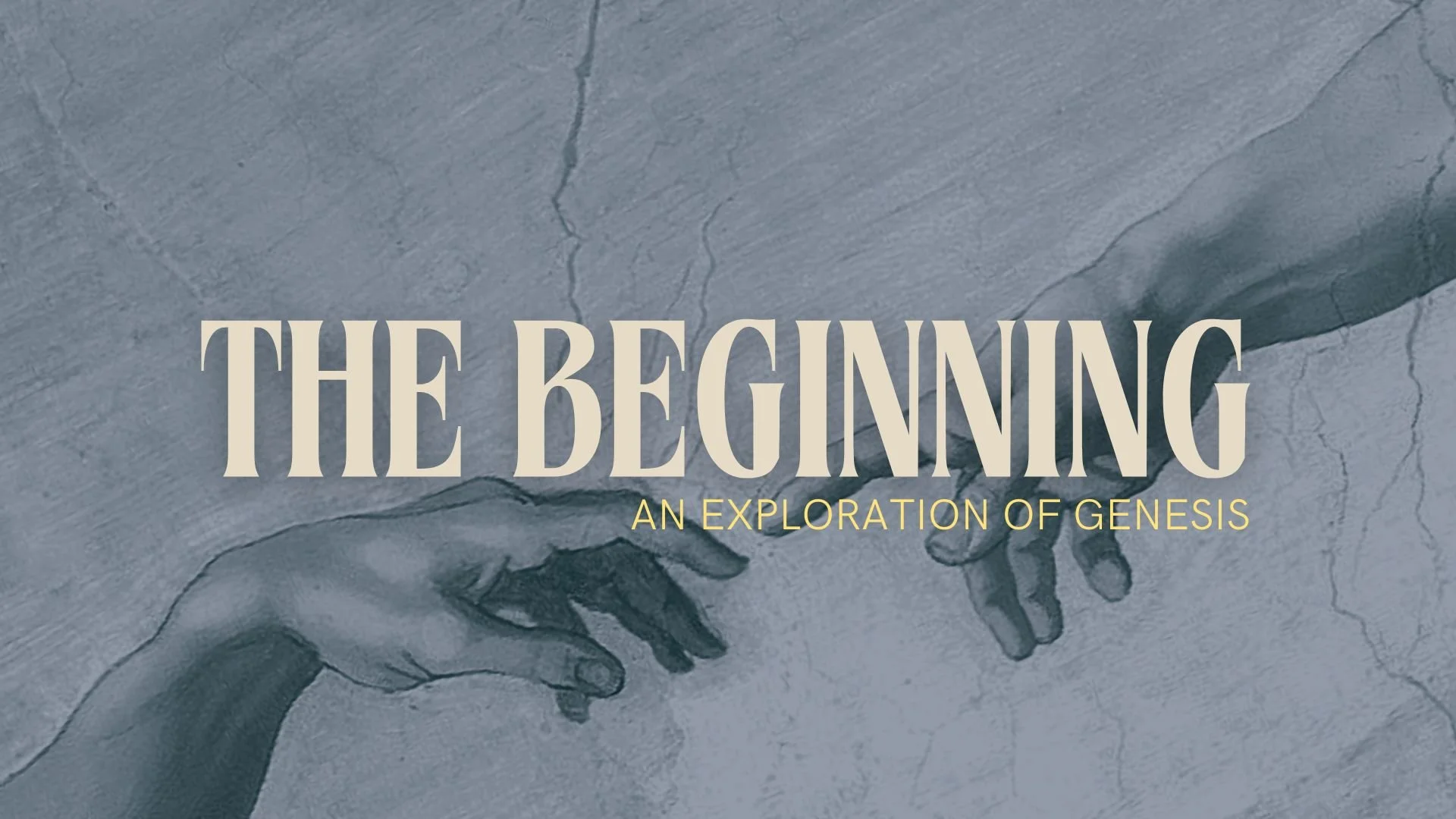Do you know what I’ve grown to learn about my own personal Christian life? Some of my lowest moments come on the cusp of my highest moments. It’s as if fear is the shadow of victory. There can be a Sunday morning when someone professes faith in Christ— joy fills the room, hope feels tangible— and yet, on the drive home, my heart is suddenly heavy with anxiety about the long-term health of the church.
The human heart is a weird thing. Even when God gives clear evidences of His faithfulness, our human reasoning doesn’t always calm the restless waters within us.
Well, at the start of our passage today, it seems Abram is experiencing something similar. After a remarkable victory of faith in which he powerfully defeats four great kings and their kingdoms with just 318 men, his heart “slows and spasms with doubt and fear.” The triumph was real. But so was the anxiety that followed.
But, notice how God responds. He doesn’t rebuke Abram. He doesn’t shame him. He doesn’t say, “After all I’ve done for you, why are you afraid?” Instead, he comes to Abram in a vision and says, “Fear not, Abram, I am your shield; your reward shall be very great.” God doesn’t minimize the fear and anxiety Abram is seemingly feeling at this point in time. No. he meets it head on. He speaks directly into the place of Abram’s fear. God meets fear with grace. He assure Abram that, with God as his shield, no ultimate harm can overtake him and that the reward ahead is very great.
Friend, God knows your heart better than anyone else. He knows the fears and anxieties you feel. And, like Abram, they’re likely crazy and irrational. But, God is willing to meet them head on with grace, truth, and hope, just like he did with Abram— “Fear not, [Christian], I am your shield; your reward shall be very great.”
The imagery of God being a shield is not isolated to Genesis 15. The word shield is used roughly 60-65 times throughout the Old Testament. About 15–20 of those directly describe God Himself as a shield. Most of them are found in the Psalms. This tells us that this imagery is one that ought to prompt worship within the hearts of God’s people! God is not merely a shield for Abram; He is “a shield for all who take refuge in him (Ps 18:30).”
In response to this promise, Abram asked, “O Lord GOD, what will you give me, for I continue childless, and the heir of my house is Eliezer of Damascus?” And Abram said, “Behold, you have given me no offspring, and a member of my household will be my heir.” So, God addresses Abram’s fears, and Abram responds with questions— “God, you speak of a reward. But what reward are you talking about? I don’t even have a son.”
Now, as we will see from this exchange, I don’t think Abram is being disrespectful here in the questions he’s asking God; I think he’s genuinely trying to reconcile the promises God has been making. He’s not shaking his fist at God; He’s genuinely trying to wrap his mind around what God has promised with what he can presently see.
I think that’s so important to note because I’ve had conversations with men before who I feel are so close to belief. They’re on the cusp of giving their heart and lives to Jesus. But they still have a lot of questions, and they’re reluctant to surrender their lives to Jesus because all of their questions aren’t answered. But, I think this passage shows us that it’s possible to believe God and still have questions for God. Questions don’t always reveal a lack of faith or belief.
Abram believed God, and it was counted to him as righteousness. But he still had questions. And God is not afraid of your questions; he invites you to ask.
So, think about where Abram is for a moment. When Abram was 75 years old, God called him to leave everything familiar and follow Him into an unknown land, with the promise that he would become a great nation. But, now, roughly 10-11 years have passed. In that decade, Abram has seen God move in profound way. He has heard God speak. He has experienced divine protection and miraculous provision. But, there’s still a link missing in the chain of God’s promise. God keeps speaking about Abram’s offspring. But there is no offspring. Every day that ticks by in another day Abram is left wondering how this promise will be fulfilled.
This New Years Eve, I had lunch with Brady at Dauphin’s. We were seated by the window on the 34th floor, talking about dreams and plans for the year ahead. As we talked, we watched several tugboats slowly maneuver a massive cargo ship out of the canal. It took more than thirty minutes just to turn that ship around. At several points we found ourselves asking, “Is it even moving?”
Friends, I think it would serve us well to be reminded that God often works at the pace of a tug boat, not a speed boat. From our vantage point, it can feel like nothing is happening. Like God has stalled out, like the ship hasn’t moved an inch. But beneath the surface, God is at work. Engines are roaring, lines are being pulled, and movement is happening. God is always sovereignly orchestrating all things for our good and His glory. He is always faithful, even when His faithfulness unfolds slowly. He is always working, even when His work feels invisible.
So, holding onto God’s promise, Abram is watching the days turn into months, and the months turn into years. He’s waiting, and he’s wondering. Somewhere in his heart he’s asking, “Lord, what exactly are You doing?” To which, the LORD responds, “This man shall not be your heir; your very own son shall be your heir.”And he brought him outside and said, “Look toward heaven, and number the stars, if you are able to number them.” Then he said to him, “So shall your offspring be.” God is saying, “No, no! You will have a son, and your sons will have sons. Your offspring will outnumber the stars in the sky!” And Abram believed the LORD, and he [the LORD] counted it to him as righteousness.
This verse, verse 6, is quote five times in the New Testament, which is more than any other verse in the book of Genesis. Which tells us how important it is to not skip it! Before God made a covenant with Abram, before circumcision entered the picture, before the law was given, Abram was counted as righteous by God because of his belief. Abraham "believed God, and it was counted to him as righteousness."
Now, there are two things I want us to take note of here in verse 6:
the phrase "believe God" and
(2) the phrase "it was counted to him as righteousness."
First, I want us to understand that there's a significant difference between believing God and believing in God. James says that "even the demons believe and shudder (Js. 2:19)." It's possible to believe in God and not believe God. There are people in my life (that I believe exist) that I don't believe. Timothy Keller said, "You can't believe God without believing in God, but you can believe in God without believing God." Unlike believing in God, believing God requires faith and trust in God's promises to you.”
I heard a helpful illustration this week that helps distinguish the difference of belief here.
Let's say there's a man skilled at walking on a tight rope, and one day he decides to walk across part of the grand canyon.
This becomes a big ordeal.
Red Bull and GoPro become sponsors of the event; it's broadcasted live on ESPN, and thousands of people gather around to watch him brave the Grand Canyon.
The moment finally arrives for him to step on the tight rope. But, before he makes his way across, he turns to the crowd and asks, "Who believes I can walk across this tight rope?"
In response, the crowd erupts, "We believe! We believe!"
He steps onto the rope and walks down and back with ease.
Once he makes it back, he proceeds to gets a wheel barrel and wheels it over to the tight rope. And before he steps on the rope once again, he turns to the crowd and yells, "Who believes I can wheel this barrel across the tight rope?"
Once again, the crowd erupts, "We believe! We believe!"
To no one's surprise, he walks down and back with ease.
He then takes a shovel and adds 500lbs of dirt to the wheel barrel and turns to the crowd and asks, "Who believes I can wheel this 500lbs of dirt across this tight rope?"
Almost instantaneously, the crowd erupts, "We believe! We believe!"
Again, he makes it down and back with ease.
The man then empties the wheel barrel and turns to the crowd, and asks, "Who believes I can take this barrel across the Grand Canyon with them sitting in it?"
The crowd falls silent. Not even a cricket chirped out of fear of being placed inside that barrel.
When their life was on the line (pun intended), they didn't trust the man's ability.
To believe God is to trust God. To believe God is to hop in God's wheel barrel, trusting him with your life and future. To believe God is to declare that he is trustworthy and reliable. To believe God is to trust that his promise to save us through His Son's death on the cross will come through. You can't believe God without believing in God, but you can believe in God without believing God.
So, do you believe God?
The second thing I want us to take note of is the phrase, "and it was counted to him as righteousness."
The word "counted" here is an accounting term, and it's the act of money being received as payment toward some end. Tim Keller gives the illustration of someone seeking to "lease to own" a home. A lease-to-own agreement is where you commit to renting a property with the option of buying the property before the lease runs out. And in some cases, when you decide to buy the property, you're able to apply those rent payments toward to purchase price of your home. So, when you choose to purchase your home, your rent payment will be credited to you as a mortgage payment. Your rent payments have a new status placed on them. They are no longer rent payments; they are mortgage payments. So, the Bible is saying that God credited Abram's belief as righteousness. Because Abram believed God, God treated his as if he were living a righteous life. And this was a righteousness that didn't inherently belong to Abram. It was a righteousness that was found outside of Abram that was freely given to Abram.
Let's make this personal. Do you believe that God sent His Son to die on the cross for you? Have you trusted in Jesus for your salvation? If your answer is yes, then through this belief, God views and treats you (right now) as if you are righteous. Your status has changed. You are justified before God. If your faith resides in Jesus, you aren't seen and treated by God as a sinner. You are seen as one who has never sinned before.
Look at verse 7, “And he said to him, I am the LORD who brought you out from Ur of the Chaldeans to give you this land to possess.” But he said, “O Lord GOD, how am I to know that I shall possess it?”
Again, questions don’t always reveal a lack of faith or belief. Abram believed God, and it was counted to him as righteousness. But he still had questions for God— “How am I to know that I shall possess it?”
In response to this question, God said, “Bring me a heifer three years old, a female goat three years old, a ram three years old, a turtle dove, and a young pigeon.” And he brought him all these, cut them in half, and laid each half over against the other. But he did not cut the birds in half. And when birds of prey came down on the carcasses, Abram drove them away.”
Now, there’s some explaining that we need to do here before we move further. What’s taking place here is a ancient near eastern covenant ceremony. During this time an animal would be cut in half, then both parties would pass between the pieces, which would symbolize, “May this happen to me if I break this covenant.” So, God and Abram are preparing to enter into a covenant together. God is formally vowing to fulfill the promises he’s made to Abram.
Now, I find the detail about the birds coming down to get the carcasses interesting. The birds of prey would defile the sacrifice and disrupt the ceremony. And I think Abram’s actions reveal to us how devoted he was to carrying out this covenant. He was actively participating in the covenant at hand, seeking to protect and carry out what God had initiated. But, as we see in verse 12, once the sun goes down, a deep sleep fell on Abram. And Abram’s work is done at this point. No more questions. No more gathering. No more sacrificing. No more driving away birds. Now, God speaks. Now God works. The LORD begins to speak to Abram, “Know for certain that your offspring will be sojourners in a land that is not theirs and will be servants there, and they will be afflicted for four hundred years. But I will bring judgment on the nation that they serve, and afterward they shall come out with great possessions. As for you, you shall go to your fathers in peace; you shall be buried a good old age. And they shall come back here in the fourth generation, for the iniquity of the Amorites is not yet complete.” So, as God is preparing to enter a covenant with Abram, he lays out for him specific details pertaining to his future. As he promises blessing, he also promises affliction. Part of the reward Abram and his descendants will experience will be found in and through hardship, hundreds of years of affliction.
Do you remember who the original audience of Genesis would have been? The book of Genesis was written under the inspiration of the Holy Spirit by Moses as he and God’s people wandered through the wilderness. It’s written to a people who were coming out of severe oppression in Egypt. So, this encounter should add color to the exodus story. Long before a whip was ever cracked in Egypt, God told Abram oppression would come. The oppression God’s people experienced in Egypt didn’t fall outside of God’s sovereign control; it was all a part of God’s good plan of redemption for his people.
So, listen. If God says something will happen, it will happen. If he says blessing is on the horizon, blessing is on the horizon. If he says persecution will come, persecution will come. If he promises forgiveness of sins, sins will be forgiven. If he promises to meet our needs, our needs will be met. If he promises to complete the good work he has begun in us, he will complete the good work he’s begun in us. If he promises to work together all things for the good of those who love Him and who are called according to his purpose, he will work all things together for good! If he promises to display his power through our weakness, he will display his power through our weakness. If Jesus has promised to go and prepare a place for us, he is preparing a place for us. If he promises to bring us to a place where there will be no more tears, pain, or crying, he will bring us to this place. If he promises to return again, he will return again. If he promises to judge all of humanity, he will judge all of humanity. What God says he will do, he will do.
So, God tells Abram what he will do for Abram and his offspring. “Then, when the sun had gone down and it was dark, behold, a smoking fire pot and a flaming torch passed between these pieces. On that day the LORD made a covenant with Abram, saying, ‘To your offspring I give this land, from the river of Egypt to the great river, the river of Euphrates, the land of the Kenites, the Kenizzites, the Kadmonites, the Hittites, the Perizzites, the Rephaim, the Amorites, the Canaanites, the Girgashites and the Jebusites.”
Notice that only God entered through the animals. Abram gathered and protected the animals in the sacrifice, sure. But, when it came time to ratifying the covenant, God alone passed between the pieces. Abram was active in protecting the sacrifice, but he was passive when the covenant was sealed.
What does this show us? It shows us that Abram entered into a covenant that was rooted on grace, not works. In walking through the pieces alone, God was essentially saying, “If this covenant fails, let me bear the consequences. If I don’t hold up my end of the bargain, let it be done to me what was done to these animals.”
Well, as you read through the rest of the Bible, you begin to find that Abram’s descendants do fail. They don’t keep up their end of the bargain often. But, God, time after time after time kept up his end of the bargain. He always did exactly as he said he would. And as we fast forward through the Bible to the life of Jesus, we see Jesus with his disciples on the night that he was betrayed. Moments before he would breath his last breath on the cross, he told his disciples, “This cup that is poured out for you is the new covenant in my blood.” And in the same way that the animals were torn in two that day with Abram, the veil of the temple was torn in two. And in the same way that the covenant God entered into with Abram was rooted in grace, the covenant he has entered into with us is rooted in grace. As Galatians 3:13 describes it, “Christ redeemed us from the curse of the law by becoming a curse for us.”
